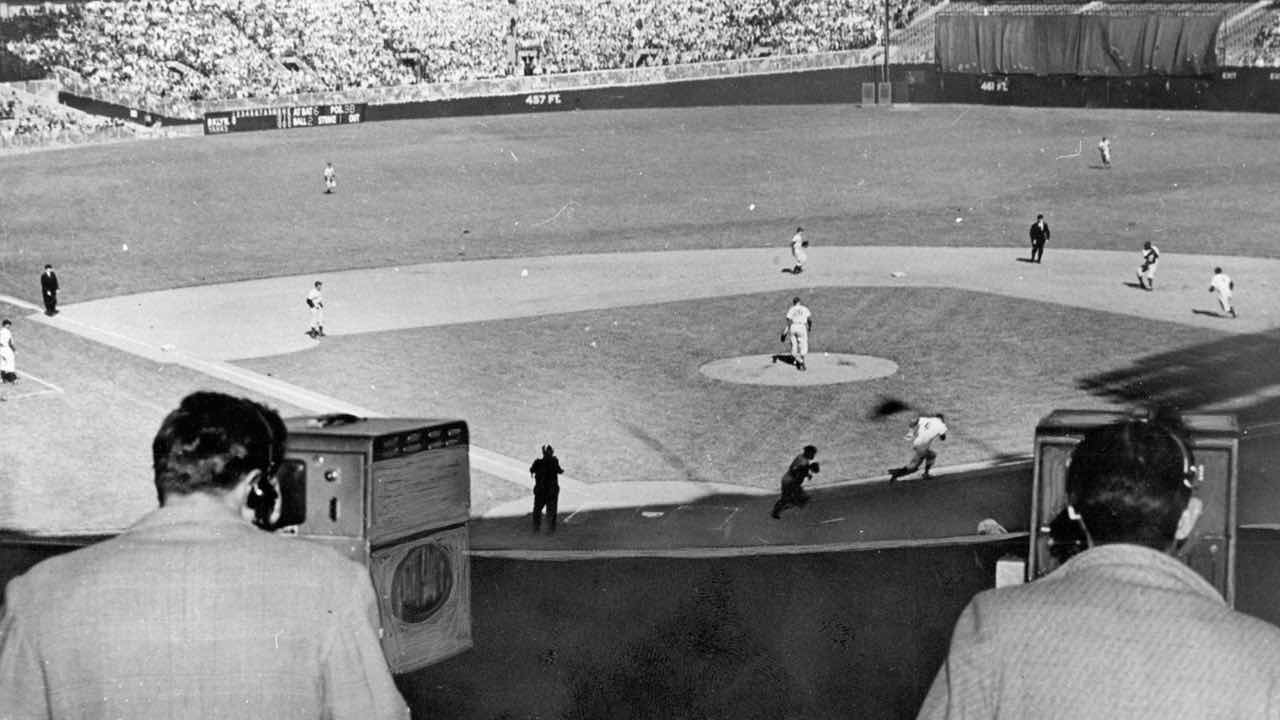📰🏟️ The great reset
How MLB’s new media deals could reshape baseball broadcasting…

Good evening. ‘Twas an ex-stream-ly big day for sports fans:
- ESPN’s direct-to-consumer app launched, making all of the Worldwide Leader’s traditional TV products available on streaming for people who don’t pay for cable TV.
- Fox debuted Fox One, a new streaming service that brings the company's news, sports, and entertainment programming under one roof.
Consumers can combine the new ESPN app with Fox One if they so desire, making it possible for those feeling left out as their friends all have babies to have their own bundle of joy.
—Peter & Kyle
Ready, Set, Go: Today’s newsletter takes ~2.08 minutes to read (552 words).
Did someone forward you this email? Subscribe here for free.
How MLB’s new media rights deals could reshape baseball broadcasting

It seems Rob Manfred found some extra money in the couch cushions after all. Major League Baseball is reportedly close to finalizing a slate of media rights deals that are expected to increase its revenue compared to the previous rights agreement with ESPN, which was paying the league $550 million/year.
- Comcast's NBCUniversal will get the rights to Friday and Sunday baseball games, as well as the Wild Card, for $200 million/year, according to a new report from the Wall Street Journal.
- For $35+ million/year, Netflix will get the Home Run Derby, per the WSJ, a move expected to boost its global audience.
- ESPN—whose 35-year relationship with the league apparently isn’t going, going, gone—is purchasing MLB.TV for “a boatload of $$$,” according to Yahoo Sports’ Kendall Baker. The Disney-owned network is also reportedly interested in the rights to some national games.
The term for each of these new deals is three years, a strategic move by MLB, which is positioning itself for the upcoming Babe Ruth of negotiations that it hopes will revamp its fragmented media rights landscape.
This reset has been a long time coming
The MLB has been on TV since 1939, when the first-ever broadcast captured a game between the Cincinnati Reds and the Brooklyn Dodgers. In 1946, the New York Yankees became the first team with a local television contract. And by 1955, all teams broadcast at least some of their games on TV.

These early broadcasting deals were all assembled through negotiations with individual teams, since US antitrust laws barred MLB teams from "pooling” their TV contract rights together until the Sports Broadcasting Act of 1961.
However, once it became legal, the MLB started cashing in on national TV rights. The league sold its first national television package in 1966, netting $300,000/team. And over the following years, MLB games became a major attraction for broadcasting giants:
- Each of the Big Three networks (ABC, CBS, and NBC) collectively shelled out billions of dollars to televise baseball nationally through the mid-1990s.
- After that, most MLB media rights transitioned to Fox in a 1996 deal that helped propel it to major network status.
Regional rights still remain important. Unlike the NFL, where nearly all games have been broadcast nationally for decades, leagues like the MLB, NBA, and NHL have historically relied on regional sports networks (RSNs) to air most of their games to local markets, with each team controlling their own local media rights.
- The MLB has held some recent conversations about centralizing broadcast rights with the league and doing away with local rights altogether—especially after the 2023 bankruptcy filing of RSN giant Diamond Sports Group, which gave the MLB control over a handful of teams’ local rights.
- But big-market teams like the Dodgers and Yankees strongly oppose the idea, since they’re able to earn far more money by selling their own rights compared to a 1/30th portion of any MLB-wide media deal.
Looking ahead…In 2028, MLB’s deals with Fox and Turner are set to expire, and roughly two-thirds of the league’s 30 teams are expected to have their rights available. The league could then bundle all of those games together, without local blackouts, to maximize rights fees by signing a variety of packages (like the NBA).
🔥 IN PARTNERSHIP WITH EXTRA POINTS
College sports news that goes deeper than headlines

Forget surface-level takes. Extra Points breaks down the forces shaping collegiate athletics and the business that fuels the entire machine. Recent topics include:
- The nightmare logistics behind college basketball scheduling
- How shoe companies and marketing firms drive (or kill) new revenue streams
- Why college sports video games are finally making a comeback
Four times/week, Matt Brown delivers the insider analysis that reveals the strategy underneath confusing industry moves.


